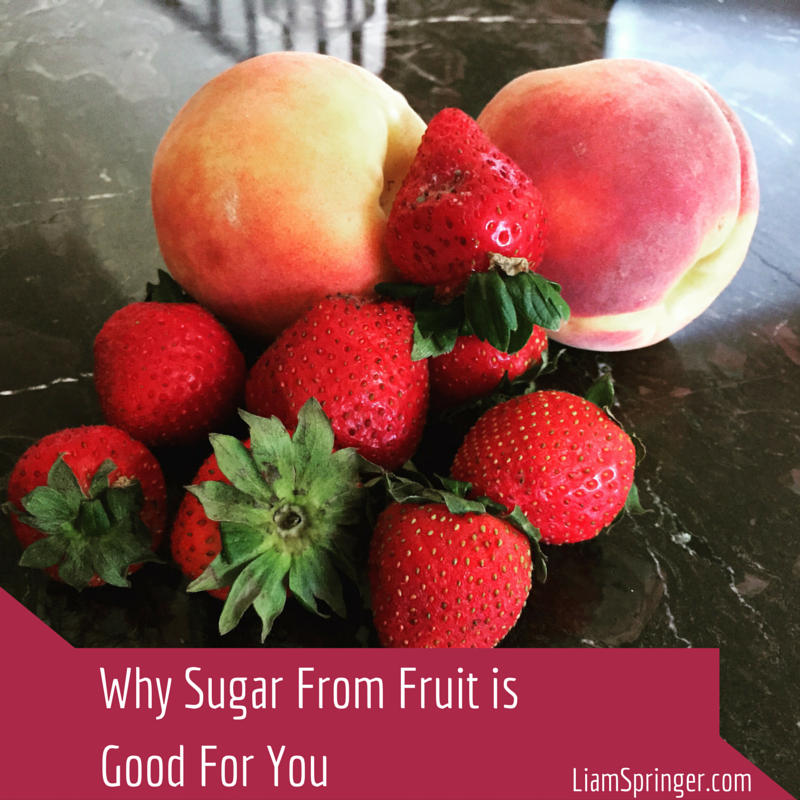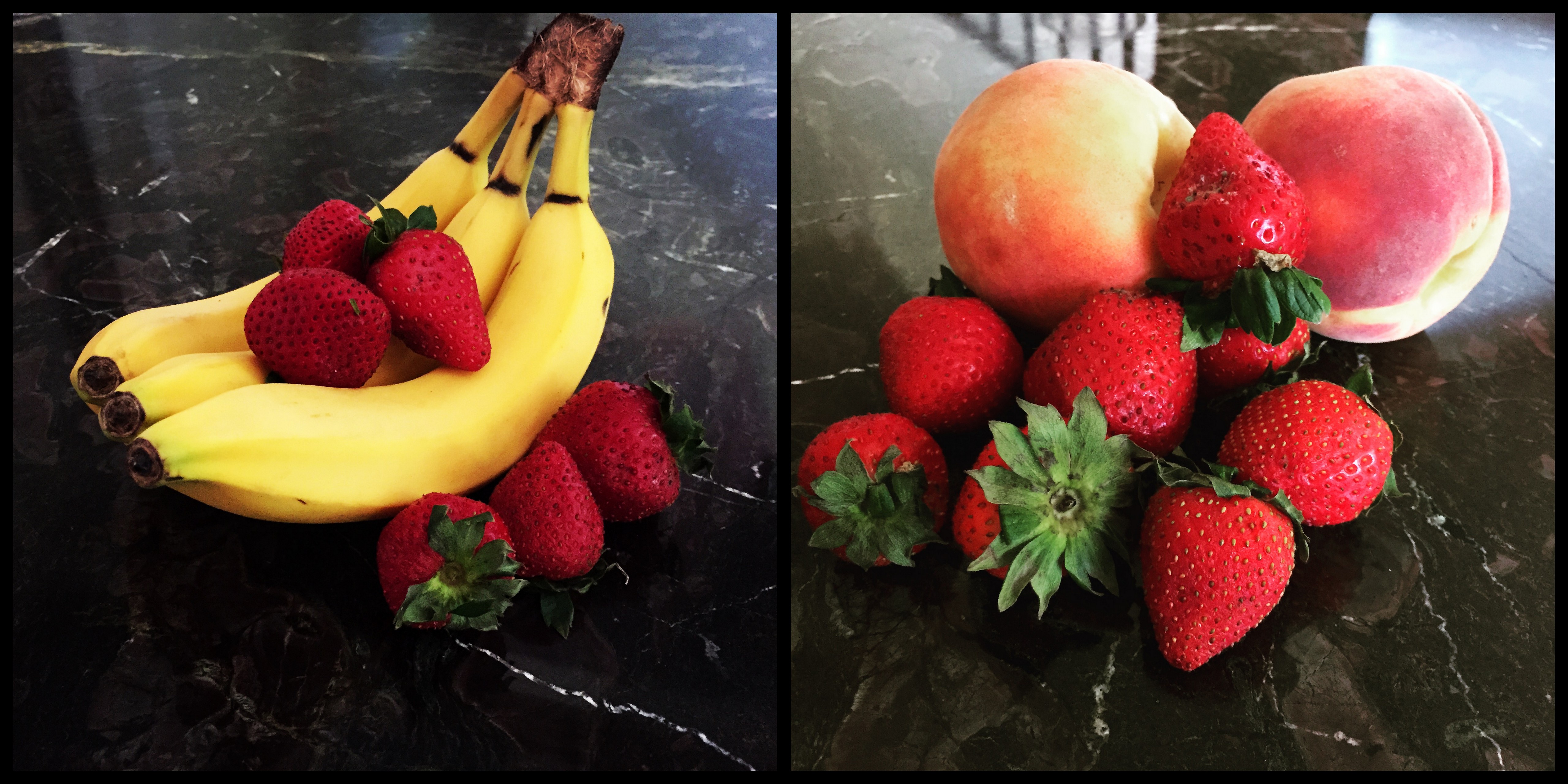
The question of whether sugar is good or bad is a complex issue. But when it comes to whether or not you should eat fruit, the answer is simple: eat up! The harmful effects of soft drinks are well known, and you’re probably aware of the claims that sugary beverages contribute to diseases like diabetes and childhood obesity. If you read my previous post on orange juice, you know that it is absurd to lump fruit juices into the category of “harmful” sugary beverages.1,2 Fruit juices, and fruit in general, contain valuable nutrients that your body needs!
If sugar is so bad, how is it that fruit is good for you?
The Importance of Sugar
Sugar gets a bad rap in the health and fitness industry and in the general media. But sugar is not all bad. It is important to understand that your body needs sugar. Your cells rely on glucose (the form of sugar found in the blood) to fuel them. And if you don’t get enough sugar from your diet, your body will go to great lengths to produce its own glucose—a process called gluconeogenesis. This natural prioritization of sugar production is proof that sugar is a crucial material for your health.
Fruit: The Good Source of Sugar
It is important to distinguish between good sources of sugar and bad sources of sugar. Soda and candy are obviously poor sources of sugar. They are devoid of nutrients, and the malnourished state produced by a lack of nutrients relative to energy intake is harmful to the body’s metabolism. Fruit, on the other hand, is a fantastic source of sugar. Fruits and fruit juices are rich in vitamins and nutrients that control the healthy moderation of the sugar they contain.
Myths about Fructose
There is a lot of propaganda out there claiming that fructose (a form of sugar found in fruit) is poison and that it will damage your liver and give you diabetes if consumed in high quantities. However, those claims are based on poor-quality studies and are simply not representing real life. Well-conducted studies have shown that fructose is actually protective against diabetes and aids in correcting diabetes when added to the diet.3-5 Fructose helps regulate metabolism and the use of sugar in the body, leading to many health benefits such as improved metabolism, increased liver health, and better protection against degenerative stress.6,7 Furthermore, fruit-rich diets protect against stress-related disease.8
Moral of the story? Eat a lot of fruit. Like a lot. And speaking of sugar, my next blog post will explain why it’s a good idea for endurance athletes to eat ice cream before bed!
Like learning about health from a scientific perspective and digging into the truth behind popular notions in nutrition and fitness? Sign up for my newsletter!
References
- Fiorito LM, Marini M, Francis LA, et al. Beverage intake of girls at age 5 y predicts adiposity and weight status in childhood and adolescence. Am J Clin Nutr 90, No. 4 (Oct 2009): 935-942. http://ajcn.nutrition.org/content/90/4/935.abstract
- Rysdale LA, Brunelle PL, Simpson JR, et al. Evaluation of fruit juice intake and body mass index within a sample of Ontario preschoolers. ICAN: Infant, Child, & Adolescent Nutrition 1, No. 3 (Jun 2009): 170-175. http://can.sagepub.com/content/1/3/170.abstract
- Bantle JP, Swanson JE, Thomas W, et al. Metabolic effects of dietary fructose in diabetic subjects. Diabetes Care 15, No. 11 (Nov 1992): 1468-1476. http://www.ncbi.nlm.nih.gov/pubmed/1468273
- Moore MC, Davis SN, Mann SL, et al. Acute fructose administration improves oral glucose tolerance in adults with type 2 diabetes. Diabetes Care 24, No. 11 (Nov 2001): 1882-1887. http://care.diabetesjournals.org/content/24/11/1882.full
- Bazzano LA, Li TY, Joshipura KJ, et al. Intake of fruit, vegetables, and fruit juices and risk of diabetes in women. Diabetes Care 31, No. 7 (Jul 2008): 1311-1317. http://care.diabetesjournals.org/content/31/7/1311.short
- Anundi I, King J, Owen DA, et al. Fructose prevents hypoxic cell death in liver. American Journal of Physiology – Gastrointestinal and Liver Physiology 253, No. 3 (Sep 1987): G390-G396. http://ajpgi.physiology.org/content/253/3/G390
- Valeri F, Boess F, Wolf A, et al. Fructose and tagatose protect against oxidative cell injury by iron chelation. Free Radic Biol Med 11, No. 1-2 (1997): 257-268. http://www.ncbi.nlm.nih.gov/pubmed/8958152
- Oyebode O, Gordon-Dseagu V, Walker A, et al. Fruit and vegetable consumption and all-cause, cancer and CVD mortality: analysis of Health Survey for England data. J Epidemiol Community Health 68, No. 9 (Sep 2014): 856-862. http://www.ncbi.nlm.nih.gov/pubmed/24687909







